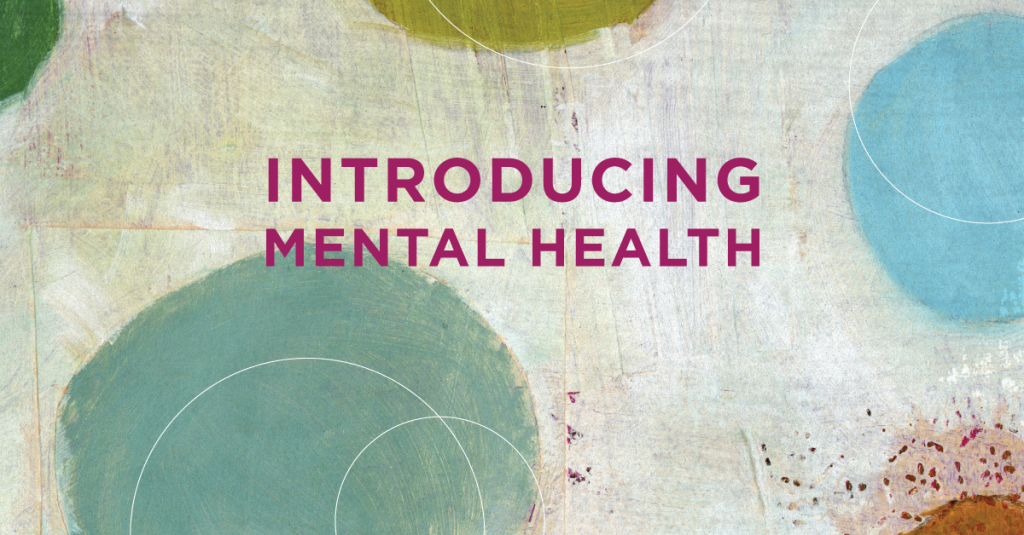Following the second edition release of Introducing Mental Health, authors Connor and Caroline Kinsella provide insight into taking a more global and simplified approach to mental health support in the fully revised and updated second edition.
We wrote the original Introducing Mental Health: A Practical Guide to make the very complicated seem a little bit simpler and to help front-line workers do what often seems like the impossible. It’s not an easy role at the best of times, but much has happened in the nine years between editions to make the job of mental health care even more difficult than it was in 2006.
As thoroughly well behaved and professional writers (ahem) we chose not to fill the book with a long list of all that is wrong with UK mental health services. After all, most of our British readers need no reminders of the savage cuts, dwindling resources and disappearing in-patient beds that are now a feature of UK mental health.
But while it’s all very well to moan incessantly about our own back yard, we looked to the developing world for inspiration to update the simple, straightforward approach to mental health care embodied in the first edition. We’re lucky enough to have as a close friend one Vikram Patel, the Foreword writer of both editions, who is also the director of the Centre for Global Mental health, London. Vikram has spearheaded the global mental health movement which has helped make mental health a priority issue in those parts of the planet where malnutrition, malaria and HIV have traditionally demanded resources that truly put our own budget cuts and resource slashing into perspective. He is now on Time Magazine’s ‘World’s 100 Most Influential People’ list and we met up with him just as he had been interviewed for BBC Radio Four’s excellent The Life Scientific series.
It was a little strange sitting in a London pub with an old friend who is now the psychiatric equivalent of Kim Kardashian, albeit with a rather more worthwhile contribution to the world. While western psychiatry remains bound by an ever increasing list of obscure diagnoses, pharmacological treatments and reliance on highly trained professionals, the global mental health approach is a means of delivering care and support to communities without the need for complex resources, vast infrastructures or highly qualified personnel. Under this guise, mental health support is largely delivered by local people who, to put it quite simply, work with people not symptoms. In a word, it’s a very, very simple model of mental health care. And it works.
Psychiatry is, after all, a relatively straightforward science. It doesn’t take a master’s degree to recognise when someone is severely depressed or saying bizarre things or taking an hour to leave their house because all the windows and doors need checking several dozen times. But supporting people through mental ill health can be anything but straightforward, and with qualified professionals and NHS facilities becoming ever more scarce, we now rely on police and prison officers, accident and emergency staff, housing support workers and (increasingly) friends and relatives to deal with our most needy and distressed people.
And while the poorest parts of the world begin to develop simple low-tech support systems that make optimal use of professional expertise combined with common-sense and the local knowledge of communities, the global mental health approach starts to look a lot like the sort of system that in many ways we in the UK are adopting by default.
We’ve written Introducing Mental Health twice, in both editions reflecting the many different scenarios and types of worker with whom we have worked in both clinical practice and training. We haven’t ignored the huge advances in the science of genetic and biological origins of mental illness, and have tried to make the science accessible to all. After all, there aren’t many people who would guess how much their Chinese takeaway has in common with the latest explanation of psychotic illness*. But above all we’ve strived to learn from Professor Patel and global mental health how this is above all a social issue, and how all of us have a part to play in helping our community’s most distressed and vulnerable people. It’s really surprisingly simple.
* Sorry. You’ll have to read the book to find the answer.
Caroline Kinsella has been a registered nurse since 1980 and has specialised in working with offenders and individuals with severe mental health problems. She has a Master’s degree in Forensic Mental Health from St Georges Hospital Medical School and is currently working with the Dorset Inreach Team as a mental health nurse assessing and care co-ordinating the needs of offenders in several Dorset prisons. Both Connor and Caroline live in Dorset, UK.
Connor Kinsella trained as a mental health nurse and has considerable experience of working with mentally ill people in both in-patient and community environments. Since 1998 he has designed and facilitated training for a wide range of services in health and social care. He writes a well-regarded blog called The Stuff of Social Care and has contributed to The Guardian’s Social Care Network.
To learn more about Introducing Mental Health click here.
